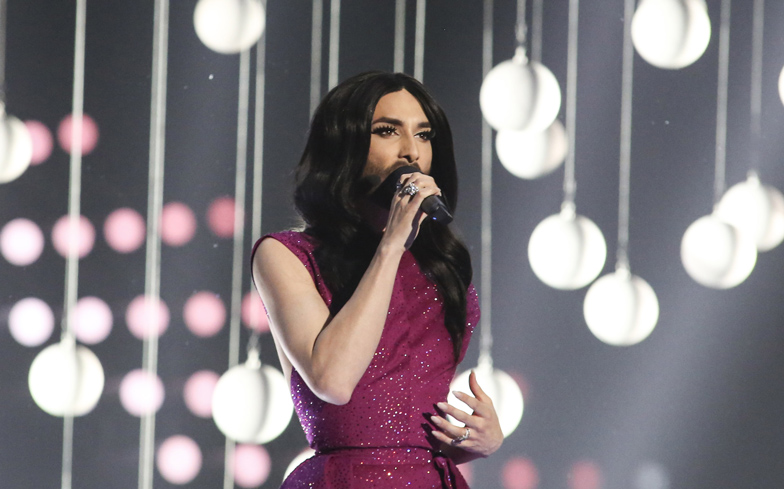
Eurovision season kicks off this evening, with the first of two semi finals taking place in this year’s hosting city Lisbon, and already the excitement is mounting.
The contest is known for being extremely popular among the lesbian, gay, bi and trans community, and year-on-year it never lets us down.
Whether it’s futuristic drag star Verka Serduchka, Poland’s scantily-clad milkmaids from 2014 or the on-stage same sex kiss during Finland’s Kristina Siegfrids’ performance, the Eurovision Song Contest offers an annual smorgasbord of the camp and colourful, complete with glamorous gowns and some perhaps ‘brave’ choreography choices.
Over the years, we’ve seen a number of contestants make bold, political statements, whether proactively or simply just for proudly being themselves.
For example, Ukraine’s 2016 representative Jamala entered with the song 1944, which concerns the deportation of Crimean Tatars, and stormed straight into coming out on top.
Almost two decades earlier, the 1998 winner Dana International won for Israel with her song Diva. Dana was the first openly trans woman to take part in the Eurovision Song Contest, and still remains one of its most memorable winners.
Another Eurovision winner recently waxed political, albeit outside of and unrelated to the contest.
Last month, Conchita spoke to the mainstream media about living with HIV, in response to an ex partner who had threatened to ‘out’ her.
She candidly explained what it means to be ‘undetectable’, and used her global platform to highlight the urgent need for us all to address HIV stigma.
Conchita’s words then echoed through countries across the world, with mainstream media amplifying some really important messages around HIV, thanks to her for choosing to share them.
This goes to show the power, influence and impact that Eurovision contestants can have, when choosing to use the platform of the show to effect positive change.
Some of the tracks, accompanying videos and artists also make strong statements this year, including Ireland’s Ryan O’Shaughnessy, whose song Together is accompanied by a video of two boyfriends spending time together.
Similarly singing sensation Saara Aalto, who herself is in a same sex relationship, will be representing her home country of Finland with queer dance anthem Monsters.
This kind of inclusive camaraderie really struck a chord with us at Terrence Higgins Trust, which is what led us to creating our own campaign around the Eurovision Song Contest.
Our free-to-order packs contain a range of fun activities that you can play while hosting your own Eurovision night in, while at the same time helping to raise money to support the work that we do.
It’s actually really, really fun, and if I wasn’t going to be in Lisbon for the actual contest this year, I’d be finalising my own plan to enjoy the pack with friends this Saturday.
The Eurovision Song Contest starts tonight with the first semi-final round, which will air on BBC Four from 8pm. Semi-Final Two follows on Thursday, 10 May at 8pm on BBC Four, before the Grand Final takes place on Saturday, 12 May on BBC One from 8pm.



